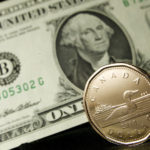Gold hovered near the highest level in two weeks on Friday and was on track to end three straight weekly declines after the Federal Reserve delayed an anticipated rate hike for what it seems later this year.
Gold futures for delivery in December traded 0.93% higher at $1 127.4 per troy ounce at 06:54 GMT, shifting in a daily range of $1 131.7 – $1 126.9. The contract settled 0.2% lower at $1 117.0 on Thursday after it earlier touched a two-week high of $1 136.0, and is up 2.1% for the week so far.
The precious metal has rebounded from a 5-1/2-year low touched in late July after growth concerns in China sparked fears for the global economy and fueled high volatility that rippled through financial markets. This, coupled with sluggish inflation at home, curbed previously predominant expectations that the Federal Reserve will increase interest rates in September for the first time since 2006.
The US dollar index for settlement in December was up 0.02% at 94.695 at 06:54 GMT, having ranged between 94.825 and 94.620 for the day. The US currency gauge tumbled 0.9% on Thursday, having earlier dropped to a three-week low of 94.485, swinging into negative weekly territory.
However, with the US labor market and manufacturing continuing to improve, a majority of traders and analysts expect the central bank to take action in December, rendering golds rebound as short-lived. Fed Chair Janet Yellen told a press conference that most policy makers still expect to raise borrowing costs this year, underscoring the strength of the US economy and tying yesterdays decision to uncertainty regarding the global economy and recent market turbulence.
“I do not want to overplay the implications of these recent developments, which have not fundamentally altered our outlook,” Yellen said. “The economy has been performing well, and we expect it to continue to do so.”
She said that the FOMC discussed the possibility of raising interest rates this month but members decided to abstain due to inflation trailing its target and because of heightened uncertainties abroad. The central bank reiterated its previous stance that it will raise borrowing costs when further improvement in the labor market is seen and it becomes confident that inflation moves toward its 2% medium-term objective.
“We can all see the Fed moving at some point,” said for Bloomberg Christopher Kelly, the New York-based chief executive officer of SDKA International. “The bottom line is US monetary policy holds more downside risks than upside risks for gold in 2015 and early 2016.”
Data on Thursday showed that fewer people than expected filed for initial unemployment benefits last week, the latest in a series of supportive employment figures, while building permits rose more than anticipated in August and housing starts fell less than projected. On the downside, manufacturing activity in Philadelphia contracted in September for the first time since February 2014.
Assets in the SPDR Gold Trust, the biggest bullion-backed ETF, were unchanged for a sixth day at 678.18 metric tons on Thursday, remaining nearly 50% below a peak of 1353.35 tons in December 2012.
Pivot points
According to Binary Tribune’s daily analysis, December gold’s central pivot point on the Comex stands at $1 122.6. If the contract breaks its first resistance level at $1 130.4, next barrier will be at $1 143.9. In case the second key resistance is broken, the precious metal may attempt to advance to $1 151.7.
If the contract manages to breach the S1 level at $1 109.1, it will next see support at $1 101.3. With this second key support broken, movement to the downside may extend to $1 087.8.
In weekly terms, the central pivot point is at $1 108.4. The three key resistance levels are as follows: R1 – $1 118.6, R2 – $1 133.7, R3 – $1 143.9. The three key support levels are: S1 – $1 093.3, S2 – $1 083.1, S3 – $1 068.0.





